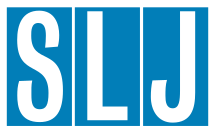Registration and travel awards are available for the Symposium for Strategic Leadership in Diversity, Equity, and Inclusion, cosponsored by Association of Research Libraries (ARL) and the Association of College & Research Libraries (ACRL). The symposium will be held Thursday–Friday, May 10–11, 2018, at the Marquette Hotel in Minneapolis, Minnesota, with a preconference on Wednesday, May 9.
The Symposium for Strategic Leadership in Diversity, Equity, and Inclusion will increase understanding and capacity among academic and research library professionals for creating healthy organizations with diverse, equitable, and inclusive climates. This event will provide actionable information and tools for library and archive leaders to take back to their organizations and help develop authentically inclusive environments, where people from underrepresented and marginalized groups can thrive and succeed. Additionally, the symposium will strengthen the community of practice around diversity, equity, and inclusion in academic and research libraries and archives.
Featured Speakers
Symposium speakers will include:
- DeRay Mckesson, Host of Pod Save the People, organizer and civil rights activist
- Rusty Barcelo, Visiting Special Assistant to the Chancellor for Diversity at University of Illinois at Urbana-Champaign
Who Should Attend?
The primary audience for this event is human resources, organizational development, and other professionals in academic and research libraries and archives who have leadership responsibilities for institutional or campus diversity, equity, and inclusion efforts. ARL member library directors and assistant/associate directors will also find value in the symposium.
Symposium Registration
The Symposium for Strategic Leadership in Diversity, Equity, and Inclusion registration fee is $250. This fee includes breakfast and lunch on Thursday and Friday, May 10 and 11, as well as the reception on Thursday night. Register online by April 20, 2018.





